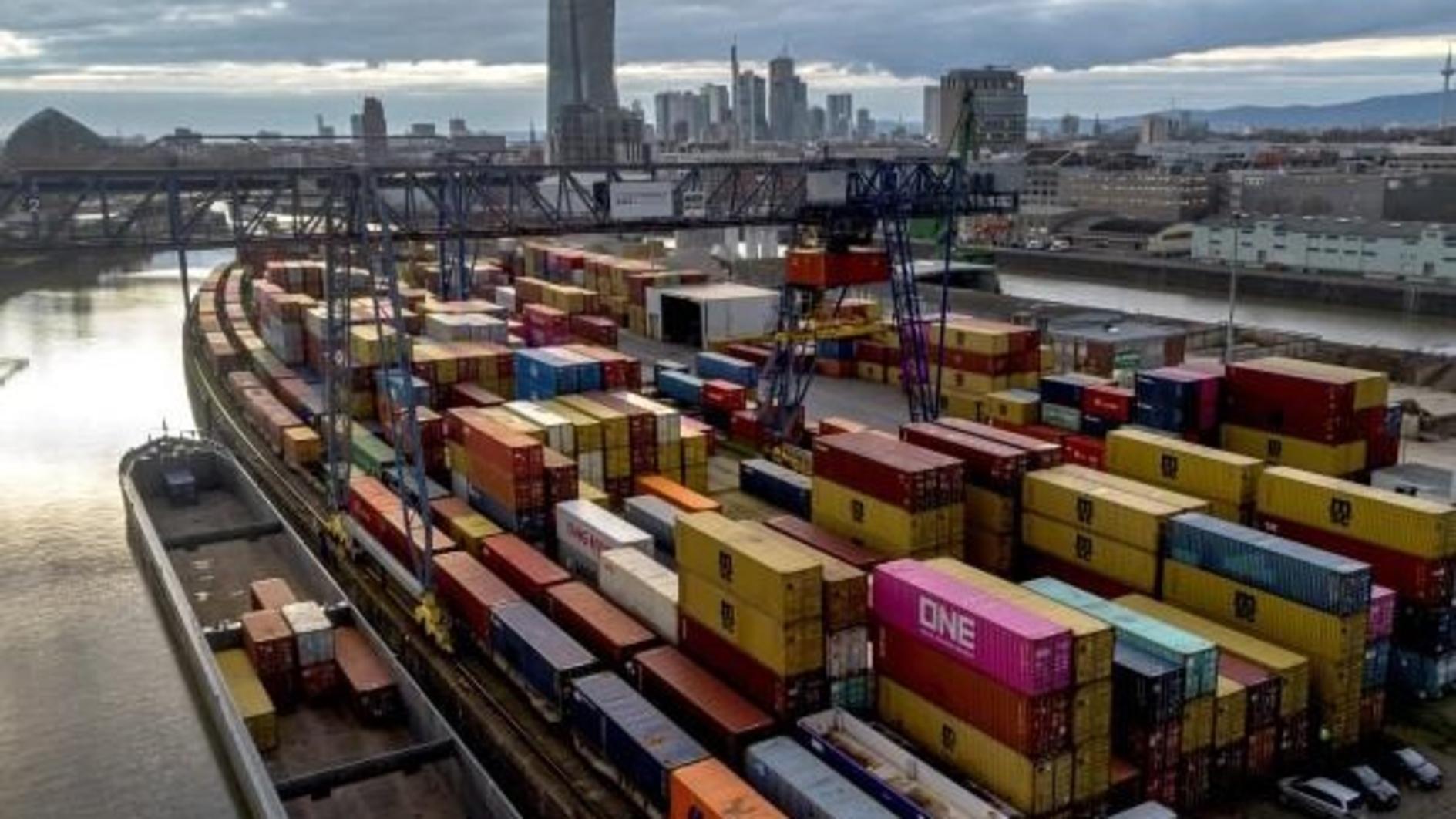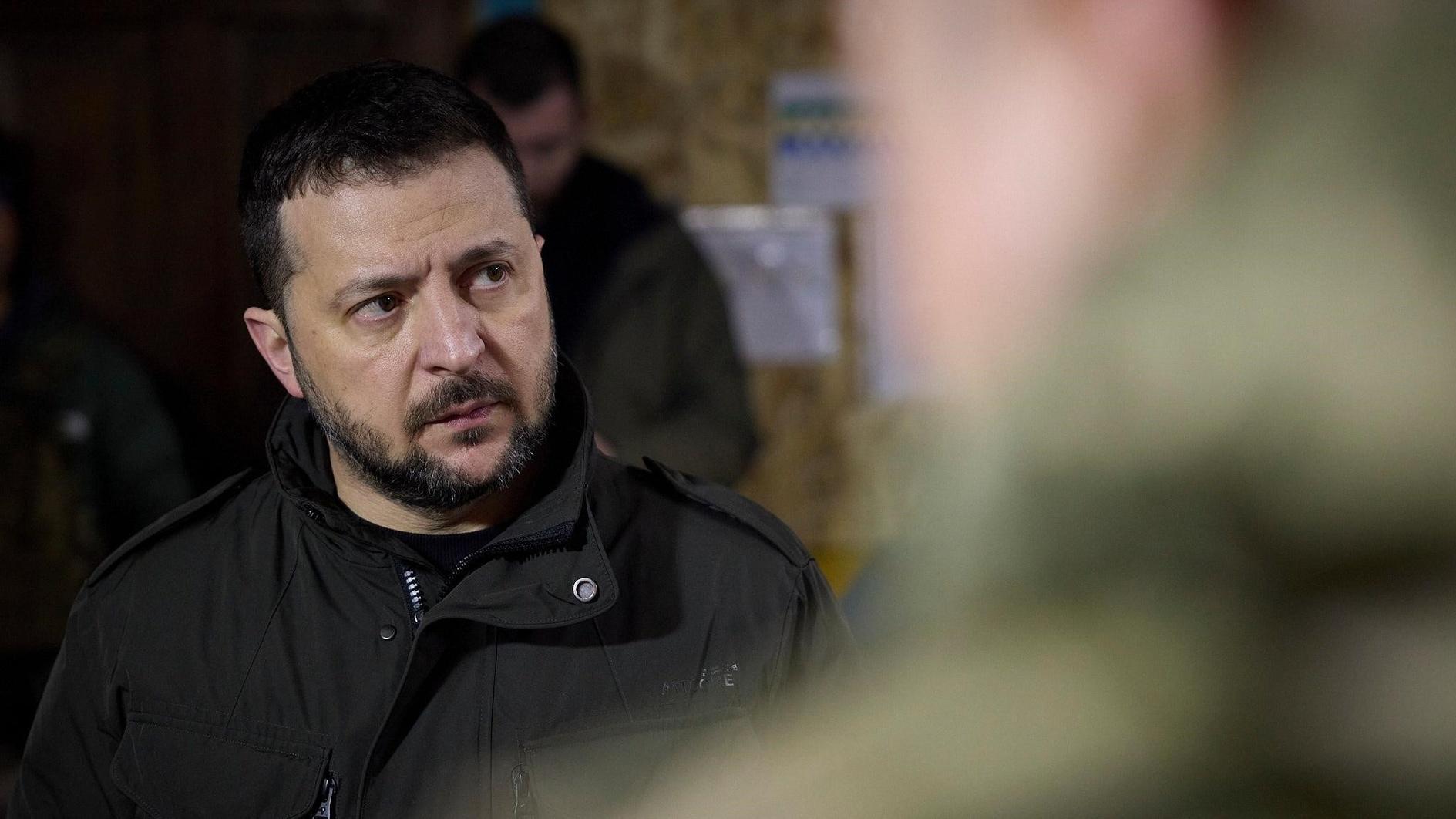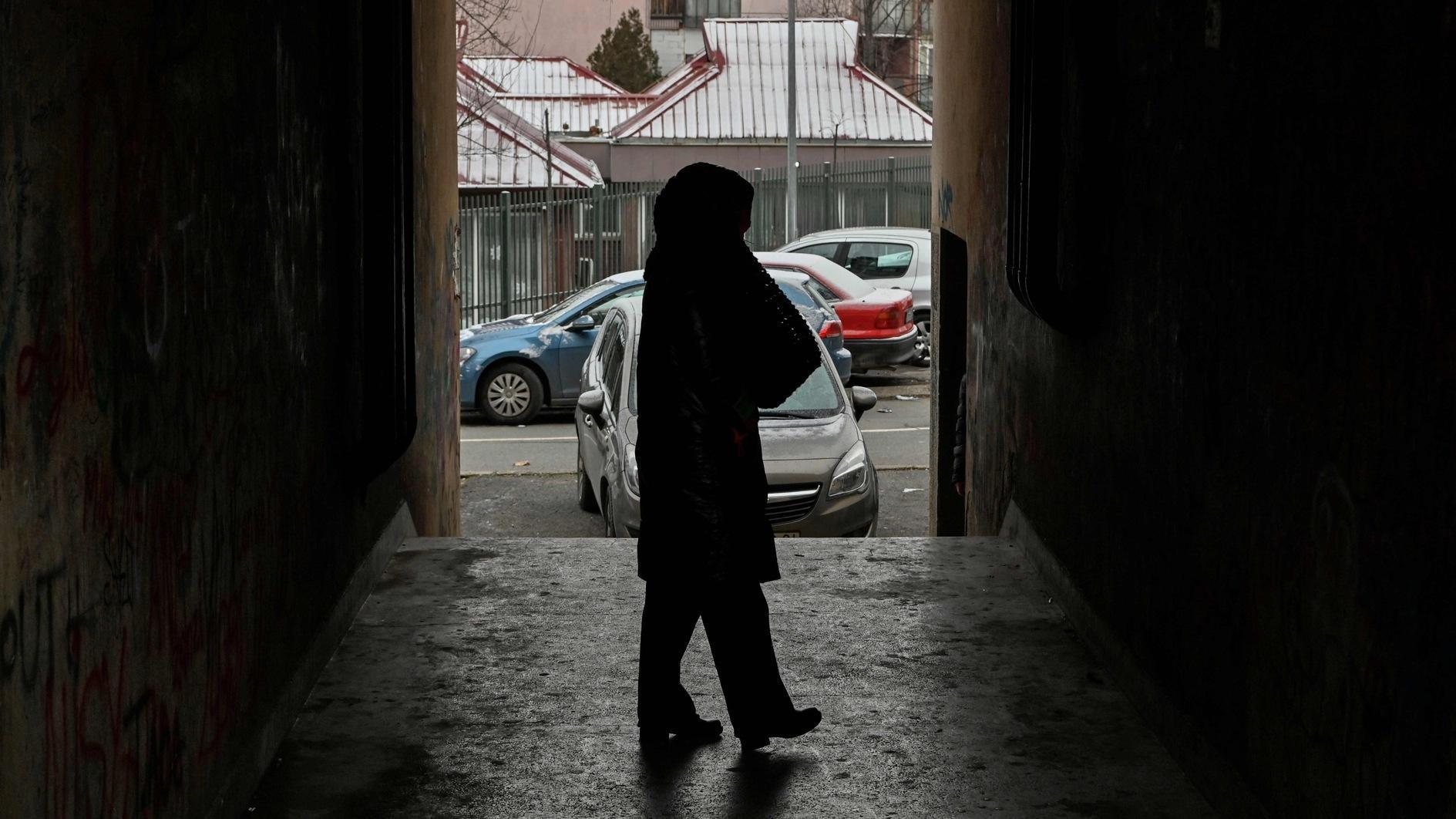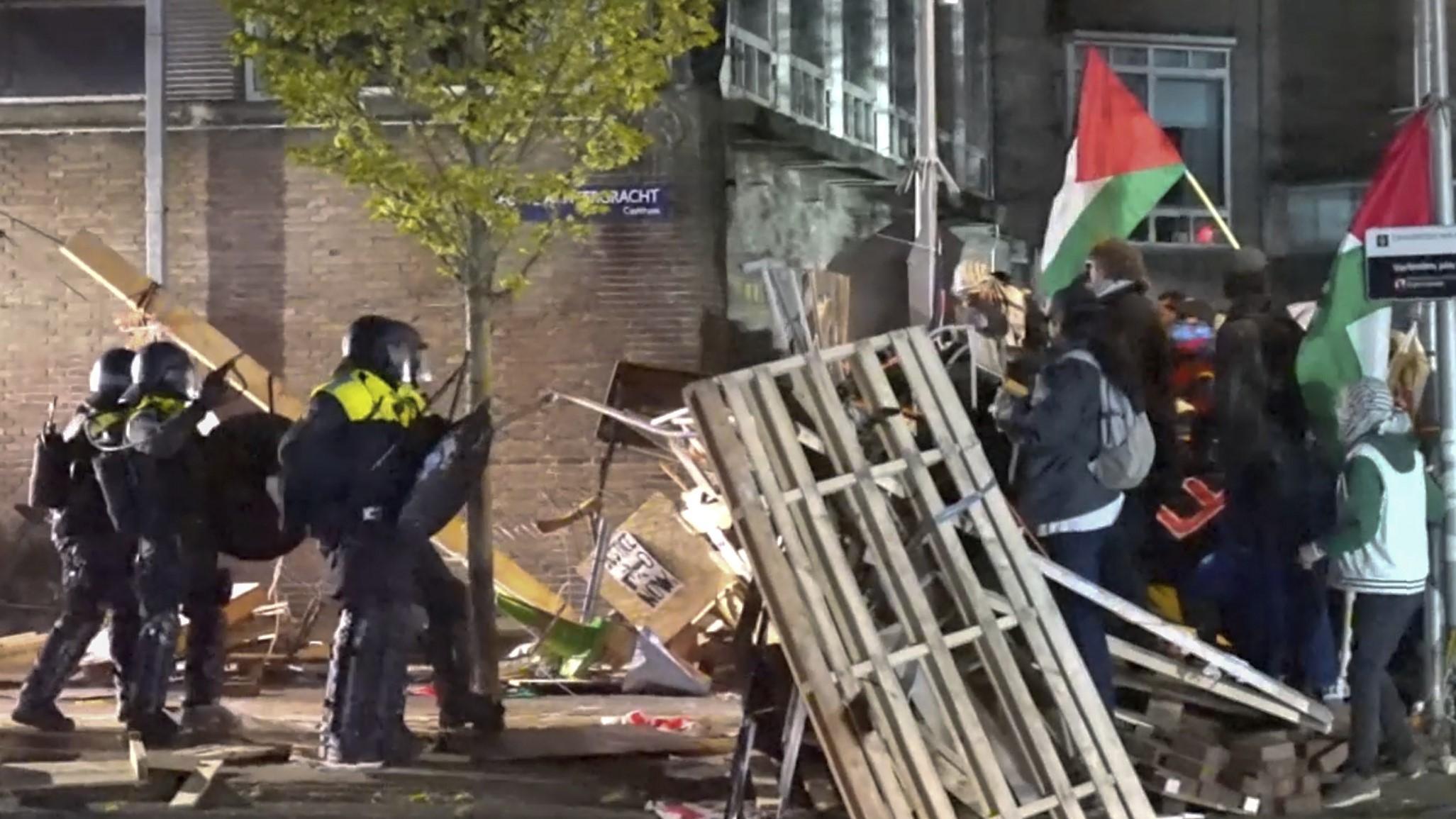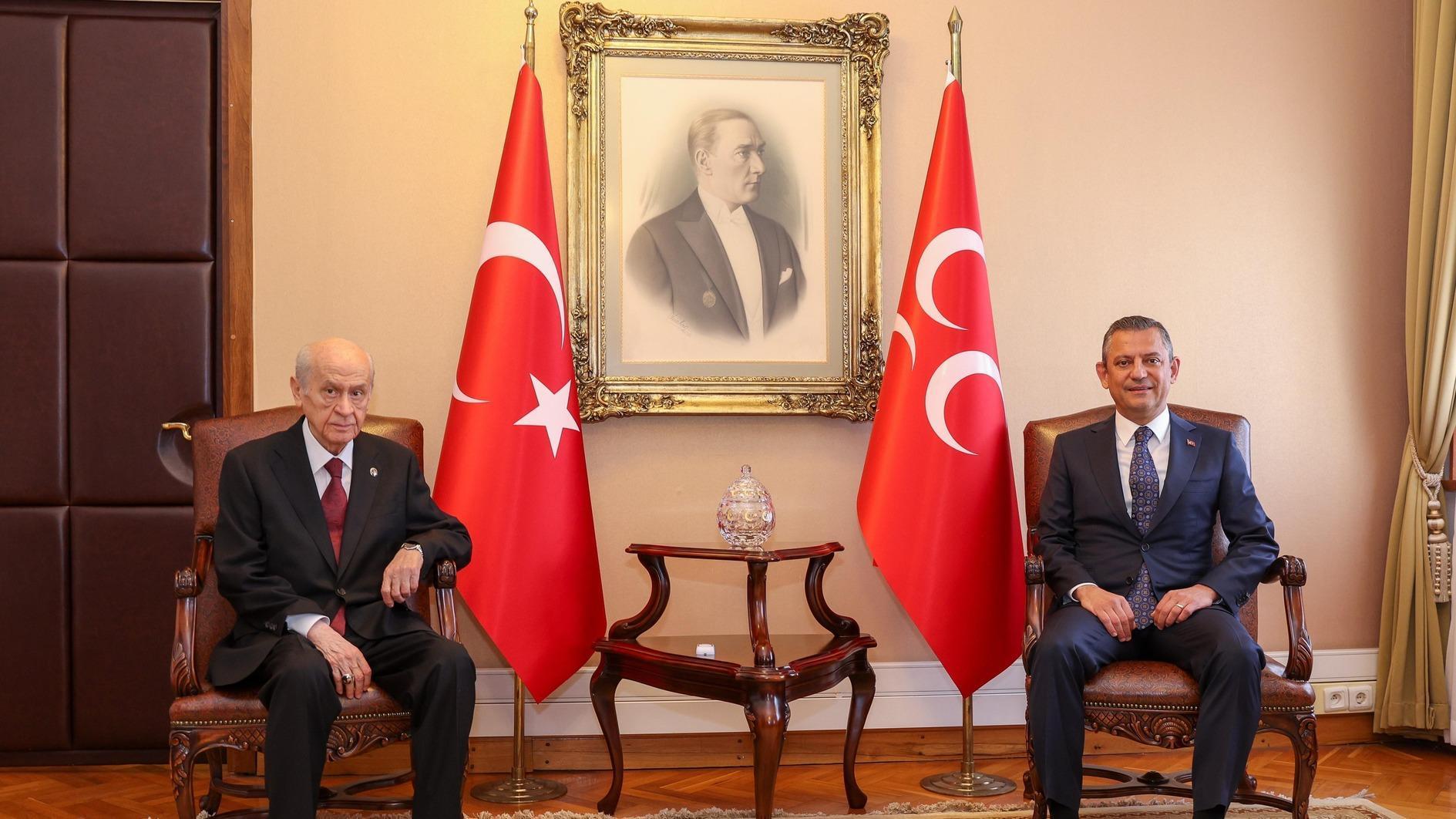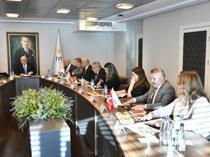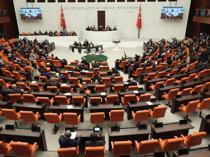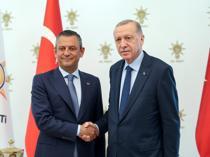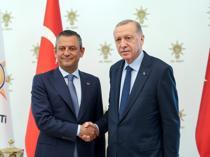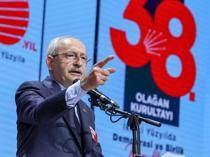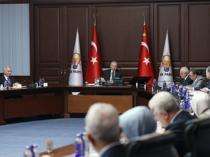Turkish gov’t says not ‘obliged’ to Kurdish peace process
ANKARA
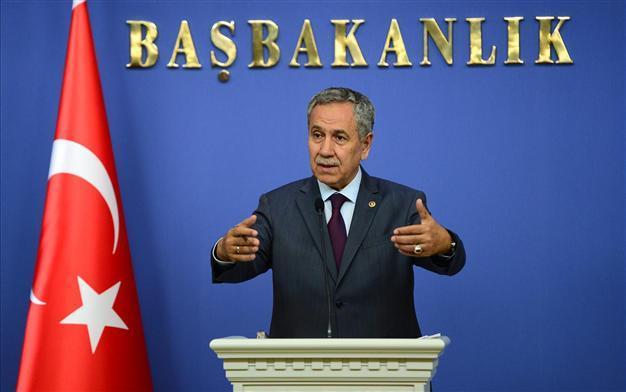
Deputy PM Bülent Arınç speaks after a Cabinet meeting on Oct. 27. AA Photo
The government has upped the ante in its increasingly heated rhetoric concerning the stalled peace process, with Deputy Prime Minister Bülent Arınç maintaining that the process is not a sine qua non for the government.“From now on, we may refrain from speaking about the resolution process in this period. We are not obliged to the resolution process,” Arınç said late Oct. 27 when asked whether a road map for the peace process would be made public soon.
Emerging from a Cabinet meeting, Arınç, also the spokesperson for the government, also said they were "determined" to advance the peace process.
“We will continue acting with perseverance and patience in the resolution process. We will not be the side that ends it, this is what we can say,” Arınç said, referring to the government-led initiative aimed at ending the three-decade-long conflict between the outlawed Kurdistan Workers’ Party (PKK) and Turkey’s security forces.
His remarks came in the aftermath of a sudden upsurge in attacks blamed on the PKK, including the killing of three off-duty Turkish soldiers in broad daylight over the weekend.
Only a few hours before Arınç’s press conference, the General Staff announced that PKK militants had hijacked a truck, seizing 400 kilograms of the explosive substance ammonium nitrate at a private coal mine in the Silopi district of the province of Şırnak, near the border with Iraq.
“We are a political institution; we are the government and we are representing the bodies of the state. We should do everything within the laws; we are at the same time a state governed by the rule of law. Some politicians, those who have close relations with İmralı and Kandil, are ignoring these incidents. The grievances of the nation are falling on their deaf ears,” Arınç said, in remarks apparently aimed to address executives of the Peoples’ Democratic Party (HDP), a key player in the Kurdish political movement represented at Parliament.
İmralı is a byword for the jailed PKK leader Abdullah Öcalan, serving a life-sentence on the İmralı Island prison off of the Marmara Sea, while Kandil is a byword for the other leaders of the PKK, whose headquarters are in the Kandil Mountains in northern Iraq.
All three actors, Öcalan, the HDP and Kandil have been involved in the process, with Öcalan playing a central role along the peace process, which the government prefers to call a “resolution process.”
“If somebody comes up and says ‘Ignore all of these things on the ground of the resolution process and tell us about the secretariat,’ at a time when the public’s sensitivity is intense like this and when the blood of our police, sergeants and soldiers is still on the floor, then we would not even look at that person’s face,” Arınç said, implicitly referring to the HDP’s demands to allocate a secretariat for Öcalan.


